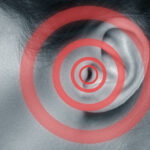Yes, high blood pressure (hypertension) can cause headaches. Elevated blood pressure can lead to a variety of symptoms, including headaches. The exact cause of the headache is not fully understood. It is thought to be due to the increased pressure on the blood vessels in the brain.
Studies on blood pressure headaches
Some studies that have been conducted on the relationship between blood pressure and headaches:
“Association of blood pressure and headache: a systematic review and meta-analysis“. This study, published in the Journal of Hypertension, reviewed the available literature on the relationship between blood pressure and headache and found that higher blood pressure was associated with a higher risk of headache.
“Headache and hypertension: an overview“. This review article, published in the Journal of Headache and Pain, discusses the relationship between blood pressure and headache, including the mechanisms by which blood pressure may affect headache.
“Hypertension and headache: from pathophysiology to treatment“. This review article, published in the journal Cephalalgia, discusses the relationship between blood pressure and headache and provides an overview of treatment options for individuals with both conditions.
How it hurts
High blood pressure headaches are typically described as a throbbing or pulsating sensation. They may also be accompanied by other symptoms, such as dizziness, nausea, and blurred vision. The intensity of the headache may vary and may be more severe in some people than in others. Some people may experience a headache only when their blood pressure is significantly elevated.Others may have more frequent or persistent headaches. The location of the headache may also vary. However, it is often described as feeling like it is located in the front of the head or temples.
It is important to note that not all headaches are caused by hypertension. There are many other potential causes of headaches, such as tension headaches, migraines, and sinus headaches.
What can be done
The most effective treatment for high blood pressure headaches is to lower the blood pressure. This can often be achieved through lifestyle changes, such as eating a healthy diet, exercising regularly, and reducing stress. In some cases, medication may be necessary to lower blood pressure. Commonly used medications for hypertension include:
- angiotensin converting enzyme inhibitors (ACE inhibitors)
- angiotensin receptor blockers (ARBs)
- beta blockers
- calcium channel blockers, and diuretics
In addition to treating the underlying cause of the headache, over-the-counter or prescription medications may be used to relieve the headache itself. Some common medications used to treat headaches include acetaminophen, aspirin, ibuprofen, and naproxen. Other medications, such as triptans, may be used to treat migraines.
The specific treatment plan for high blood pressure headaches will depend on the individual. It may involve a combination of lifestyle changes, medication, and other therapies. Have your blood pressure checked regularly, as high blood pressure can lead to serious health problems if left untreated. If you are experiencing frequent or severe headaches, talk to a healthcare provider to determine the cause and receive appropriate treatment.




